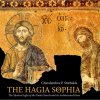His first poems were published in 1959, when he was twenty-one. Simic was drafted into the army in 1961. In 1966, he graduated from New York University while working nights to pay for his tuition.
Since that time, Simic has written prolifically, producing over 60 books of published both in the US and abroad. In 1973, Simic moved to New Hampshire, where he is now a professor of English at the University of New Hampshire. He and his wife, Helenne, have two children, Anna and Phillipe. In 1990, Simic won the Pulitzer Prize for poetry for his collection The World Doesn't End: Prose Poems. He has also won awards for his works Walking the Black Cat and Classic Ballroom Dances. Simic was elected to The American Academy of Arts and Letters in 1995, which can be considered the highest formal recognition of artistic merit in the United States. Simic served as the Chancellor of the Academy of American Poets from 2000 until 2002.





